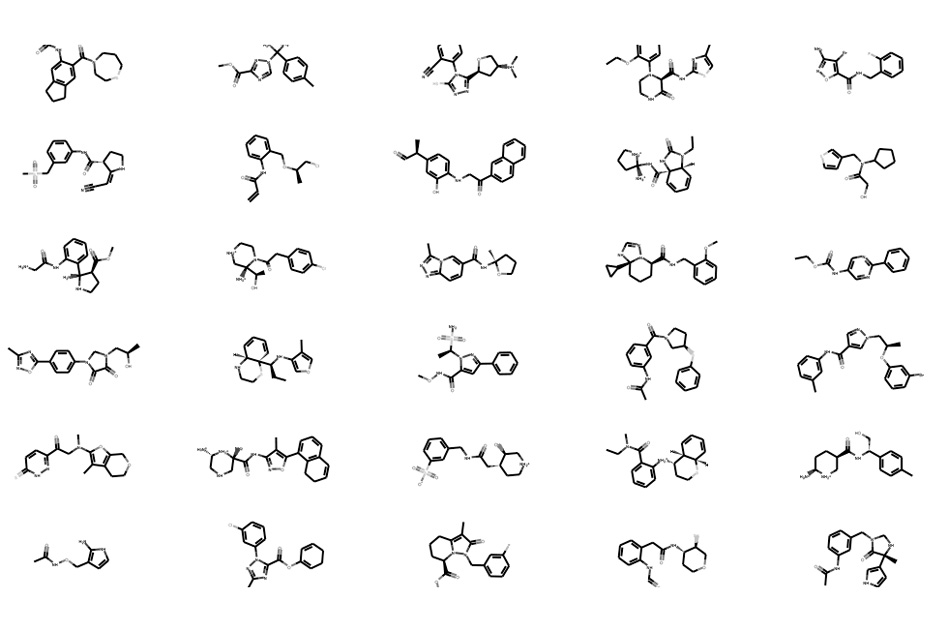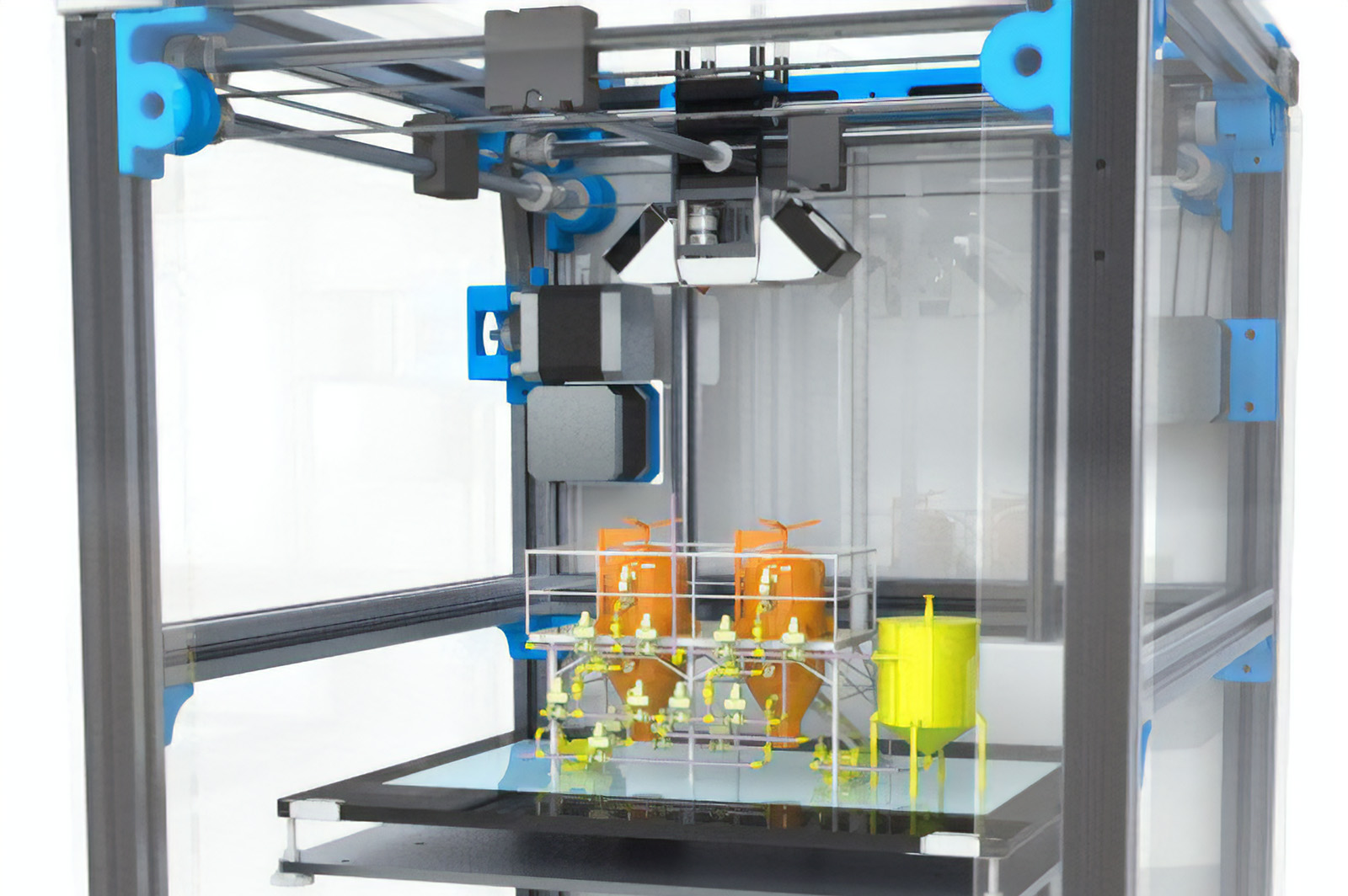Tag Archives: Pharmaceuticals
Amazon acquires another healthcare start-up for its Amazon Care program
 Amazon is expanding its push into the healthcare industry. After purchasing online pharmacy PillPack last year, the company has now acquired Health Navigator, a start-up that provides online symptom checking and triage tools to help companies direct...
Amazon is expanding its push into the healthcare industry. After purchasing online pharmacy PillPack last year, the company has now acquired Health Navigator, a start-up that provides online symptom checking and triage tools to help companies direct...
Amazon puts former Kindle leader in charge of its pharmacy business
 Amazon's entry into the pharmacy business might not have the leader you'd expect. CNBC has learned that the online retailer has picked Nader Kabbani, an executive who helped establish the Kindle self-publishing system and has worked in Flex and logi...
Amazon's entry into the pharmacy business might not have the leader you'd expect. CNBC has learned that the online retailer has picked Nader Kabbani, an executive who helped establish the Kindle self-publishing system and has worked in Flex and logi...
MIT researchers automate drug design with machine learning
 Developing and improving medications is typically a long and very involved process. Chemists build and tweak molecules, sometimes aiming to create a new treatment for a specific disease or symptom, other times working to improve a drug that already e...
Developing and improving medications is typically a long and very involved process. Chemists build and tweak molecules, sometimes aiming to create a new treatment for a specific disease or symptom, other times working to improve a drug that already e...
3D printers could let you produce your own drugs
 You might imagine that drug production only happens at gigantic pharma corporations with millions of dollars worth of equipment. However, researchers at the University of Glasgow have unveiled a new process of building "reactionware," or small reacto...
You might imagine that drug production only happens at gigantic pharma corporations with millions of dollars worth of equipment. However, researchers at the University of Glasgow have unveiled a new process of building "reactionware," or small reacto...
Old drug gets an absurd price hike to $89,000 per year
 Martin Shkreli doesn't have a monopoly on jacking up drug prices. Marathon Pharmaceuticals has received FDA approval for an old drug used to treat Duchenne muscular dystrophy, deflazacort, and in the process has raised the price to ridiculously high...
Martin Shkreli doesn't have a monopoly on jacking up drug prices. Marathon Pharmaceuticals has received FDA approval for an old drug used to treat Duchenne muscular dystrophy, deflazacort, and in the process has raised the price to ridiculously high...
Why is Johnson & Johnson getting into startups?
 Everyone knows Johnson & Johnson, the conglomerate behind Band-Aid, Tylenol and Johnson's Baby Shampoo. By comparison, very few folks outside the tech industry will have heard of Hax, a Shenzen-based startup incubator. Now, however, the pair are...
Everyone knows Johnson & Johnson, the conglomerate behind Band-Aid, Tylenol and Johnson's Baby Shampoo. By comparison, very few folks outside the tech industry will have heard of Hax, a Shenzen-based startup incubator. Now, however, the pair are...
ISS experiment will investigate how pills dissolve in space
 Space is weird, and it's well known that floating around up there takes its toll on our fragile human bodies. If we're to ever conquer the final frontier, we'll need to do more than eat our greens to keep healthy in alien conditions. A new experiment...
Space is weird, and it's well known that floating around up there takes its toll on our fragile human bodies. If we're to ever conquer the final frontier, we'll need to do more than eat our greens to keep healthy in alien conditions. A new experiment...
Pharmaceutical Researchers Use Levitation To Develop Better Drugs
Watch the video.
OMGWTF!! Amirite?
But maybe you’re wondering what’s going on. Well, it seems researchers at the Argonne National Laboratory outside Chicago are looking into ways of developing more efficient drugs. Specifically, they want to make more precisely calibrated drugs that would still deliver their therapeutic benefits while requiring less of the drug being taken. As part of this process, they have to evaporate the solvent that contains the active molecules while avoiding these taking up a crystalline form, as this yields a less efficient product. But if they mix the ingredients in a regular vessel (like a beaker), crystals are much more likely to form during the evaporation process (think of snowflake crystals forming only around dust particles). So they turned to “to an acoustic levitator, a piece of equipment originally developed for NASA to simulate microgravity conditions.”
Two small speakers to generate sound waves at frequencies slightly above the audible range – roughly 22 kilohertz. When the top and bottom speakers are precisely aligned, they create two sets of sound waves that perfectly interfere with each other, setting up a phenomenon known as a standing wave.
At certain points along a standing wave, known as nodes, there is no net transfer of energy at all. Because the acoustic pressure from the sound waves is sufficient to cancel the effect of gravity, light objects are able to levitate when placed at the nodes.
Crystals form when touching a surface? No problem: let’s get rid of the surface! Clearly you can only do this to small amounts at a time, so it’s more of an analytical tool than one intended to be used in mass production.
[ Full Article With Details ] VIA [ GeeksAreSexy ]
FDA approves Proteus Digital Health’s e-pills for dose monitoring
An "ingestible sensor" doesn't sound like the tastiest of snacks, but soon it might be just what the doctor ordered. A tiny microchip which activates upon contact with stomach acid has recently been given the green light by health regulatory agencies in the US and Europe. When the sensor is swallowed, an external patch picks up its signal and shoots a message over to whoever it's supposed to. The technology is aimed at tackling an issue known in the healthcare biz as compliance -- or, following instructions. Correct timing and dose are important for many drugs, and lax schedules can be responsible for treatment failures or the development of nasty drug-resistant bugs. Although the necessary trials used placebo pills, one pharmaceutical heavyweight has already bagged a license to the technology for real-world applications. If the thought of passing microchips is troubling you more than the thought of eating them, no need to worry -- the kamikaze sensors dissolve in your stomach shortly after completing their mission.
Continue reading FDA approves Proteus Digital Health's e-pills for dose monitoring
Filed under: Science
FDA approves Proteus Digital Health's e-pills for dose monitoring originally appeared on Engadget on Wed, 01 Aug 2012 17:04:00 EDT. Please see our terms for use of feeds.
Permalink | DVICE, Proteus Digital Health | Email this | Comments
DVICE, Proteus Digital Health | Email this | Comments 